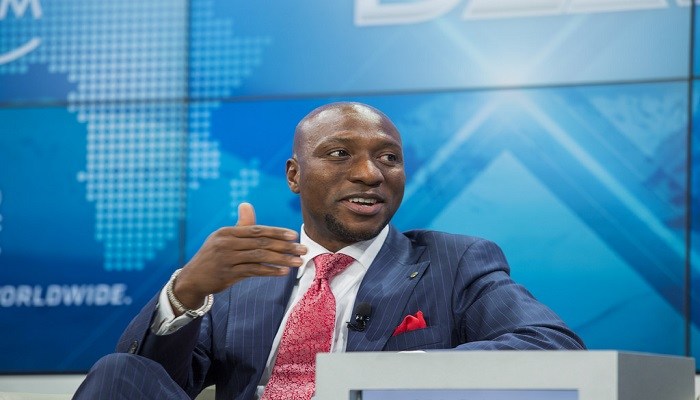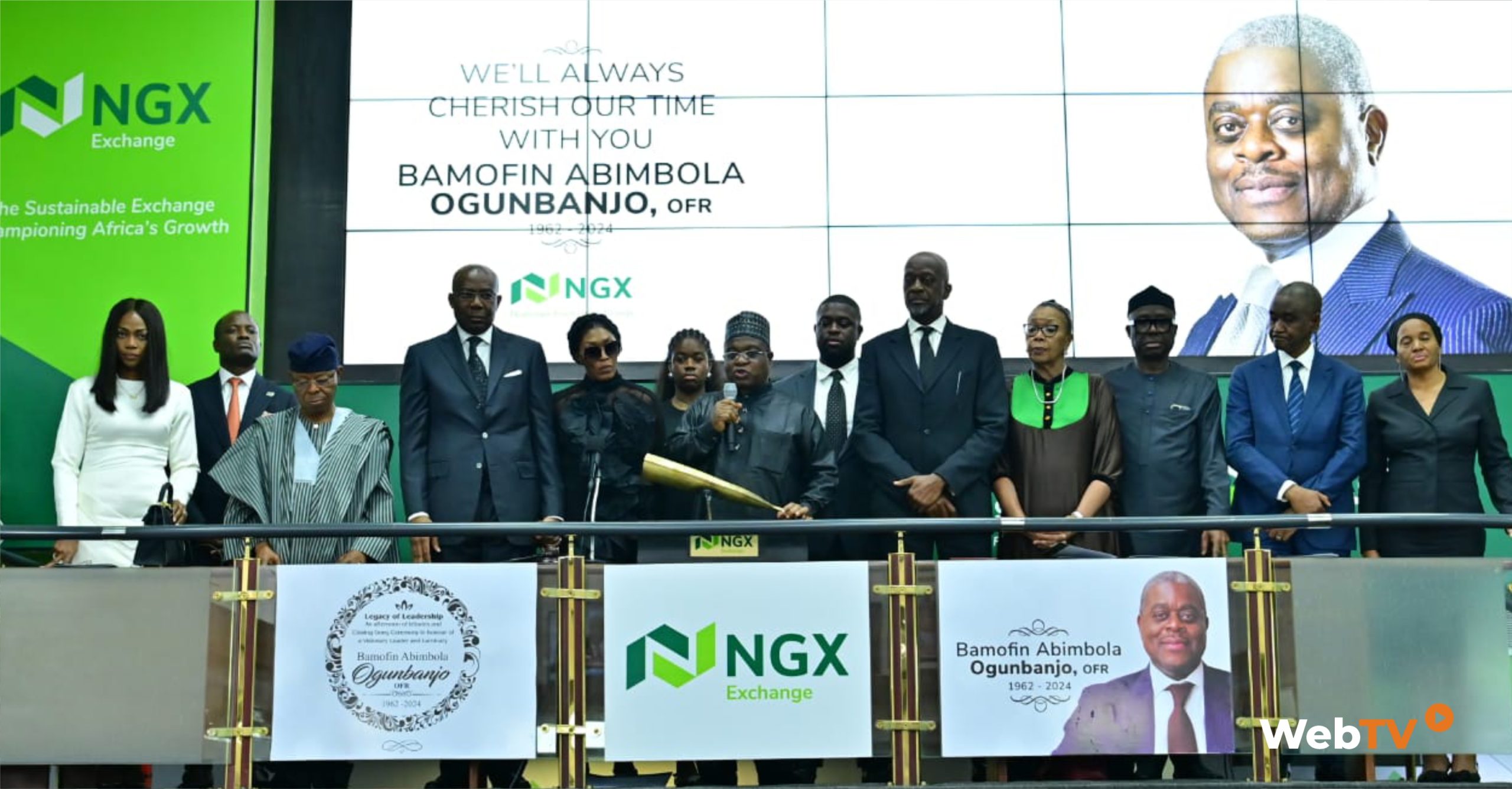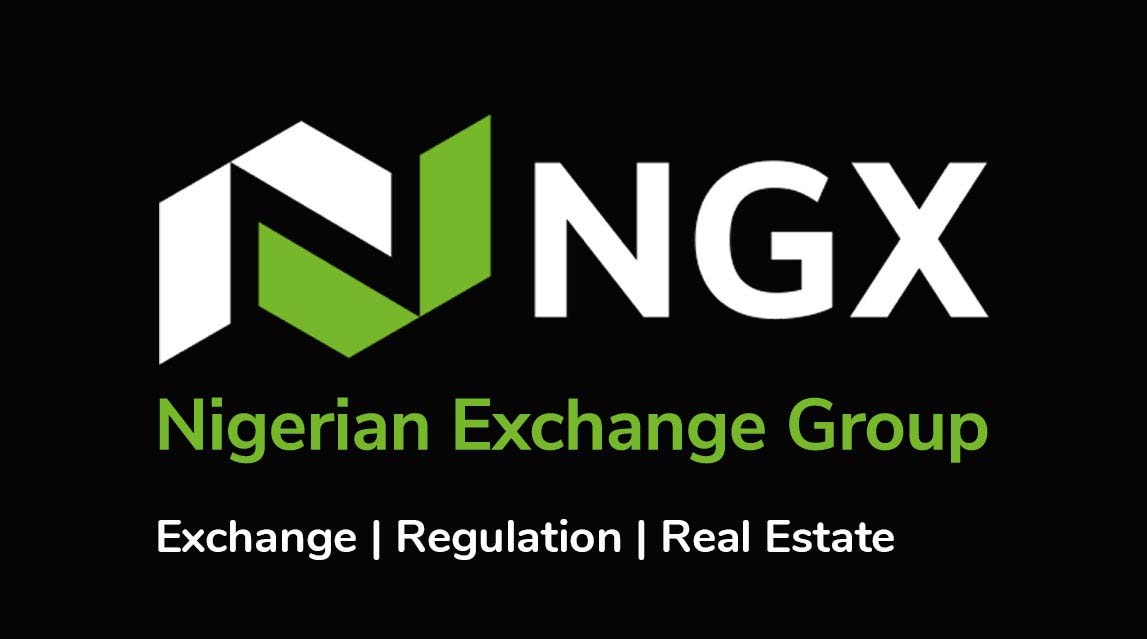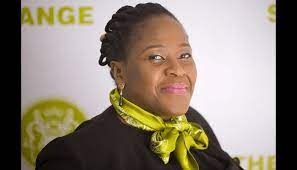Business
Earnings, Insider Trading Boost NGX Market Cap In July

Trading figures as at Monday showed that market capitalisation at the Nigerian Exchange Limited (NGX) peaked at N1.814 trillion for the month ended July 31, 2023.
The management of the NGX opines that this positive trend is traceable to the quality of results by quoted companies and insider dealings, which has seen directors and associates consolidating their positions in the companies on whose board they sit.
According to the NGX July ended on a positive note, driven by earnings and dividend declaration from quoted companies. “The gain was also supported by insider dealings among companies as directors and related parties consolidated their positions”, it noted.
These two catalysts, the NGX added are founded on “sustained positive reactions to the ongoing reforms by President Bola Tinubu”.
The period under review, also witnessed profit taking, selloffs and FX pressures, while “the benchmark NGX All-Share index which opened the trading month at 60,968.27 points, closed at 64,337.52 points, representing a 5.53 percent growth while year-to-date (YTD) close at 25 percent,” it added in a statement.
Similarly, market capitalisation – listed value of equities, rose by N1.814 trillion from N33.197 trillion to N35.011 trillion, in the same period.
The period was characterised by what the NGX described as “better-than-expected corporate earnings, higher dividend payouts and relatively improved liquidity as fixed incomes yields were not stable in the face of soaring inflation which supported buying interests in the market and flow of funds into the equity space”.
Recall that a total turnover of 2.854 billion shares worth N37.645 billion in 41,547 deals was traded by investors on the floor of the Exchange last week Friday.
The high traded volume and mixed sentiment experienced during the month reflected the buying interests by majority shareholders and activities of institutional investors as they sought to hedge against inflation on mixed outlook for fixed income rates and yields.
This followed the fact that Q2 performance of some quoted companies, reflected ahead of inflation rate, which reinforced optimism for better earnings tilting towards higher stock prices and higher dividend payouts at the end of the financial year.
Analysts, the NGX pointed out share the view that the outcome of the July Monetary Policy Committee (MPC) meeting rubbed off on the corporate earnings some of which have given rise to interim dividend declarations to whet the appetite of bargain-hunting activities on the bourse.
The NGX noted that these might culminate in profit-taking activities on stocks that have experienced substantial appreciation.
Analysts at Cordros Research, said, “In the medium term, we expect investors’ sentiments to be influenced by developments in the macroeconomic landscape and the movement of yields in the fixed-income market.”
Business
Nigeria Exports Over 2m Barrels Of Jet Fuel To US
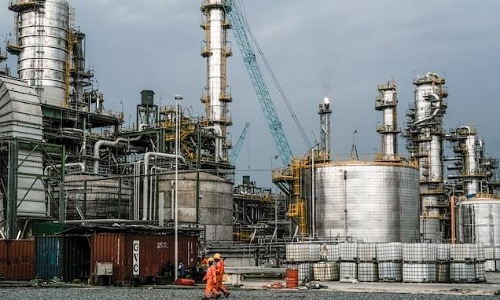
Evidence of the growing influence of the Dangote Petroleum Refinery & Petrochemicals has manifested far beyond Africa and the Middle East, with the United States having imported over two million barrels of jet fuel from the Nigerian based refinery in March.
According to experts, this development should bring immense joy to Nigerians, as it attests to the unparalleled quality of the refinery’s products and the trust that the international community places in the world’s largest single-train refinery.
Going by data from ship-tracking service Kpler, six vessels carrying around 1.7 million barrels of jet fuel from the Dangote Petroleum Refinery arrived at US ports this month.
It was gathered that another vessel, the Hafnia Andromeda, is set to arrive at the Everglades terminal on 29th March with approximately 348,000 barrels of jet fuel.
ALSO READ: NDSF Torch Brightens Edo State
The shipments from the Dangote Refinery, with a capacity of 650,000 barrels per day (bpd) — Africa’s largest — highlight its potential to reshape global fuel trading dynamics, establishing a new swing supplier in the Atlantic Basin.
Biztellers reports that this shipment to the United States follows three cargoes of jet fuel, totalling around 130 million litres, exported from Nigeria to Saudi Arabia by the Dangote Petroleum Refinery.
The refinery has already demonstrated its ability to compete with European refiners on gasoline (PMS) exports, and these jet fuel shipments to the United States could challenge the economics of domestic producers in the world’s largest fuel-consuming nation.
According to Chief Operating Officer of TankTiger, Steven Barsamian, “the surge in demand, partly driven by the influx of supply from Nigeria, is expected to lower jet fuel prices in the US ahead of the peak summer travel season. US jet fuel imports from Dangote Refinery are expected to decrease aviation fuel prices during this period, according to trade analysts and storage brokers. US jet fuel imports in March have averaged around 226,000 bpd, the highest since February 2023, underlining the global demand for products from Dangote Refinery.”
The Dangote Refinery, which commenced production in January 2024, has already exported its products to almost every continent. While the surge in US imports was partly triggered by a maintenance-related shutdown at the Phillips 66 Bayway refinery in New Jersey, analysts believe the choice of Dangote’s products highlights its growing presence in international markets, having successfully competed with European refiners in gasoline exports.
Economist and Chief Executive Officer of the Centre for the Promotion of Private Enterprises (CPPE), Dr Muda Yusuf, stated that the export of jet fuel to the United States by Dangote Refinery is a point of pride for Nigeria, highlighting the quality, standard, and the trust that the international community places in the refinery.
“Nothing could be more prideful for us as a country than the fact that we now have a refinery producing products that can be exported to the United States. It speaks to the quality, standards, and trust that international communities have in Dangote Refinery, because these are markets that don’t compromise on quality. They have stringent standards, and if they deem it worthy to import from Nigeria, it is a source of great pride,” he said.
On his part, the former Director-General of the Lagos Chamber of Commerce and Industry (LCCI) also emphasised that Dangote Refinery is enhancing Nigeria’s position on the global stage and should be supported by both citizens and the government.
“That is why all of us—citizens and the government — should do everything to support the refinery, as it is breaking many barriers and boosting our country’s reputation. The lesson here is that we should support the Dangote Refinery and other refineries with similar capacities, as they can provide us with significant leverage,” he added.
Similarly, Public Policy Expert, Dr Abimbola Oyarinu, stated that the Nigerian economy would be in a better state today if the country had functional refineries in the past, rather than just exporting crude oil while importing refined petroleum products.
“This is something that should have been addressed since 2014. Things wouldn’t have reached this point—such as high inflation and unemployment—if we had a functioning refinery. However, both the government and the people failed to take action until Dangote stepped in with significant investment. The Dangote Refinery is not only reducing foreign exchange outflow, but it is also bringing in foreign exchange. It is unfortunate that despite this, some elites and those in power are still intent on sabotaging the refinery and Dangote himself,” he said.
The university lecturer also warned that the lack of ease in doing business and the frustration of local investments could discourage future investors.
“This is something the country should be proud of. We previously had a mono-economy, reliant solely on oil exports, but Dangote has helped diversify the sector by selling finished products to international markets. However, which investors would want to invest in Nigeria after seeing what Dangote is going through?” he queried.
Business
Sustainability: CDP Rates Dangote Cement High On Climate Change, Water Security
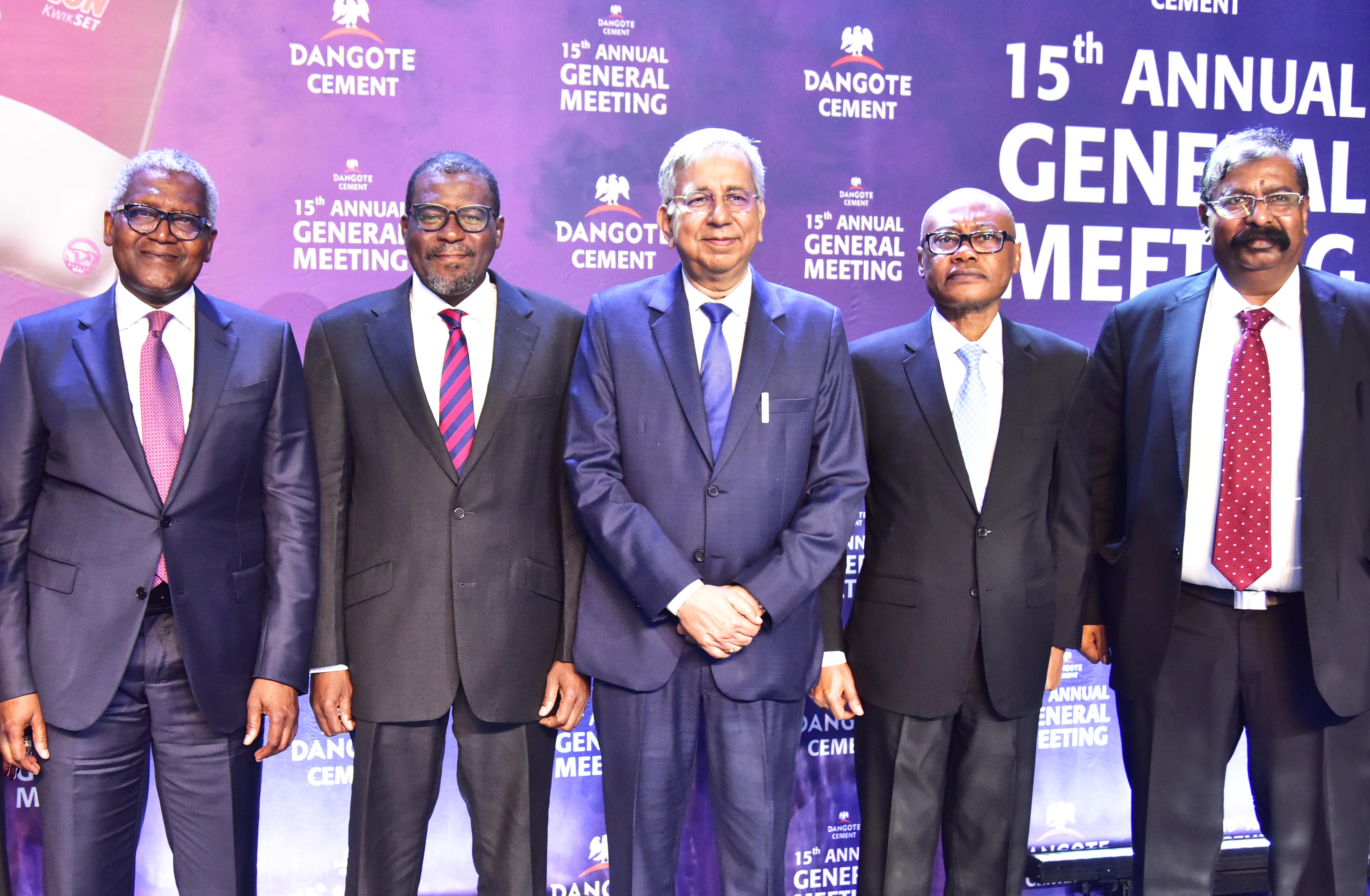
The Dangote Cement Plc (DCP) has achieved a ‘B’ score in climate change and water security disclosures according to the recently released 2024 Carbon Disclosure Project (CDP) results.
The CDP is the world’s largest, most comprehensive dataset on environmental action which empowers investors, companies, cities, and national and regional governments to make earth-positive decisions.
It was gathered that Dangote Cement has disclosed its environmental practices annually through the CDP since 2018.
On its part, the CDP provides a voluntary framework for companies to report on Climate, Water Security, and Forests. It rigorously evaluates corporate environmental performance, assigning scores from A to D based on companies’ transparency, governance, and measurable actions towards sustainability. Following the release of company scores in February, Dangote Cement’s score on water security which was C was upgraded to B. Similarly, the company’s commitment to supporting a climate resilient future was also demonstrated in its climate change score of B in 2024.
ALSO READ: ADF Spreads Palliatives To 10 States
On the new rating, Managing Director/Chief Executive, Dangote Cement, Arvind Pathak, said, “Dangote Cement leads in Africa as one of few businesses in six states and regions of Africa to disclose through CDP.”
He further stated that “the 2024 score is an outcome of ongoing efforts to reduce our carbon footprint, accelerate climate action and promote sustainability across our business and its value chain.”
On his part, the Head, Sustainability, Dangote Cement, Dr. Igazeuma Okoroba, expressed gratitude to all stakeholders who aligned with the Group’s Environmental, Social, and Governance (ESG) strategy overseen by the company’s Board which supported the achievement of an improved rating this year.
She asserted that “this year’s results are evidence that our contribution to create a world where people, planet and profit are truly balanced is paying off.”
Affirming the company’s commitment to decarbonisation, Dr Igazeuma stated that “Although this year’s score demonstrates our transparency on sustainability, DCP’s goal is to go beyond disclosure and take meaningful action through tangible solutions, innovations, and projects to close the gap between ambition and reality.”
Dangote Cement Plc is sub-Saharan Africa’s largest cement producer with an installed capacity of 45.6Mta across 10 African countries and operates a fully integrated “quarry-to customer” business with activities in manufacturing, sales, and distribution of cement. The company is on track to meet its decarbonisation targets through energy efficiency measures, adoption of supplementary cement materials, carbon offsets and other sustainable practices.
Business
Nothing Is Impossible, Dangote To Harvard Scholars

Young entrepreneurs and scholars have been urged to rise above limitations and push their ambitions to help transform the world into a better place.
The President/Chief Executive, Dangote Industries Limited, Aliko Dangote, gave the charge in Lagos last Wednesday when a delegation of Harvard Kennedy School scholars visited the Dangote Petroleum Refinery & Petrochemicals complex and Dangote Fertiliser Limited in Ibeju Lekki, Lagos.
Addressing the 50 scholars, representing 18 different nationalities from across the globe, Dangote emphasised the importance of being driven by ambition and a ‘can-do’ spirit, as exemplified by the Dangote Group in constructing the world’s largest single-train refinery.
He stressed that ambition should be paired with a desire to create a legacy and make an impact, not simply for profit.
ALSO READ: Okpebholo Stands With Tinubu On Rivers State
“Life is not worth living without ambition. In this life, nothing is impossible. Don’t allow fear to hold you back. Be knowledgeable about the business you want to pursue. I am not an engineer, but I don’t engage in any business I don’t understand,” he said.
Dangote, who spent over 40 minutes answering questions from the scholars, recalled being advised against building the refinery, as many argued that such mega projects were only feasible for sovereign nations, not individuals.
He shared that, during the COVID-19 pandemic, the company had to find ways to sustain the project.
He also noted that the ingenuity involved in constructing a world-class refinery, which meets global best practices, produces Euro V products, and is capable of processing over 100 different types of crude oil, has kept it running despite shortage of Nigerian crude oil.
Vice President, Oil & Gas, Dangote Group, Edwin Devakumar, explained that building the 650,000-barrel-per-day refinery was a monumental feat that required immense courage, vision, and determination.
He pointed out that the group acted as its own Engineering, Procurement, and Construction (EPC) contractor for the project – a refinery with a capacity of 650,000 barrels per day – a feat that had never been attempted before.
“Our Group President has a plaque in his office that reads, ‘nothing is impossible.’ This is the mindset he instilled in us when faced with challenges. He does not accept impossibilities and always aims for excellence. This approach was the same when we revolutionised the cement industry in Nigeria. We turned the country from one of the largest importers of cement into a net exporter. Today, after decades of depending on imported refined products, we now have the capacity to meet all of Nigeria’s refined product demands, with surplus supplies of jet A1, gasoline, and diesel for export. Other products from the refinery include polypropylene, carbon black feedstock, and sulphur,” he said.
Devakumar highlighted the significant investments made to realise the project, including dredging 65 million cubic metres of sand to raise the height of the site by 1.5 metres to safeguard against potential sea level rises due to global warming. The group also procured 330 cranes and lifting equipment due to the lack of local capacity, built the world’s largest granite quarry to supply materials such as coarse aggregates, stone columns, and stone dust, and constructed the refinery on 250,000 piles – potentially the largest number ever used for a single project.
The scholars, who toured the magnificent complexes, were in awe and praised Dangote for his ambitious vision, which seeks to address global needs. They commended him as an inspiration and entrepreneurial genius, with many describing the visit to the refinery as the highlight of their tour, which also included stops in Ghana and Abuja.
Sheffy Kolade, leader of the Harvard Kennedy School student-led Nigeria-Ghana Trek and a global advisor for the Women for Prosperity project with the Atlantic Council’s Freedom and Prosperity Center, said that the Dangote Group symbolises Nigeria’s resilience and economic transformation.
“I want to start by saying that the Dangote Group is not just a business. It is a symbol of Nigeria’s resilience. It is a symbol of the bright future that lies ahead for us. It represents the extraordinary achievements possible when we put our minds to something. I am happy that we are here to witness the economic progress happening in Nigeria. We’ve seen the largest single-train refinery in the world, and we’ve visited a fertiliser plant that exports to South America and the US,” she said.
A social entrepreneur and a member of the Forbes Business Council, Kolade added, “From where we are standing, thousands of people earn their daily livelihood. This business has created numerous jobs and energy security for our country. It has reduced our reliance on imported petroleum products, and, of course, it is increasing our foreign reserves. I want to thank you, sir, for everything you’re doing for our country and for Africa. We appreciate it. It’s truly inspiring for us.”
On her team and their mission at the refinery, Kolade noted, “My team consists of 50 people from 18 different nationalities. We have people from nearly every continent. We are a blend of policy, business, sustainability, and development-minded individuals, most of whom are from the Harvard Kennedy School. There’s one from the Harvard Business School, one from Harvard Public Health, and others pursuing joint degrees with Harvard, Stanford, and MIT. We are all curious-minded people who value impact, sustainability, and progress.”
Another member of the team, Darrow Merton, a Foreign Service Officer with the United States, described Dangote’s vision and resilience as an inspiration to entrepreneurs. He praised Dangote for not only breaking barriers to build the refinery but also for his ability to provide innovative solutions in the face of adversity.

